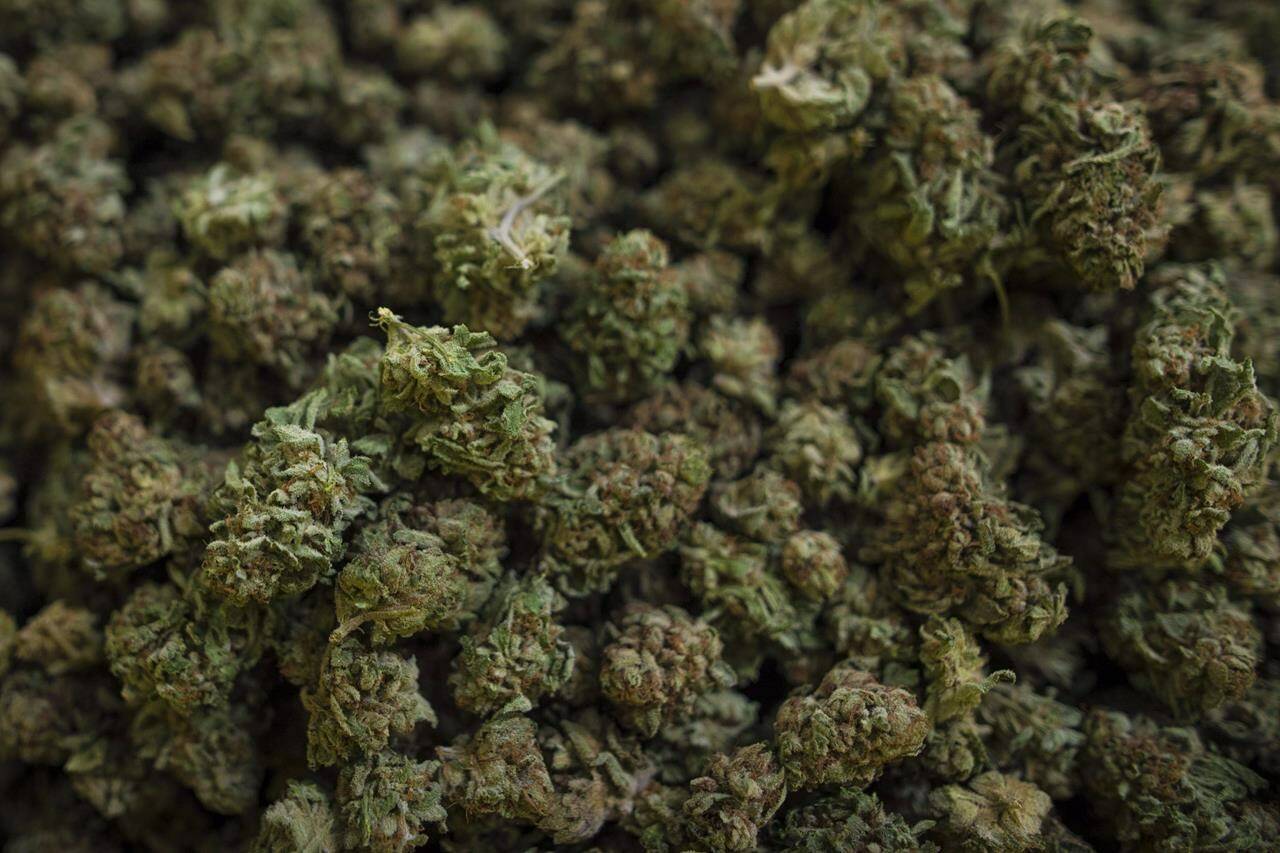Ontario cannabis stores are seeing their sales data shared among competitors without approval for at least the second time in a year, sparking concerns for shops competing in an already intense industry.
Jennawae McLean, the co-founder of Kingston, Ont. cannabis store chain Calyx + Trichomes, said she reported to provincial cannabis regulators last week that a spreadsheet with sales data was being shared among retailers.
The data set she saw was a Excel file with sales figures for Hamilton stores but had hundreds of hidden cells, which could mean data affecting other locations is also available.
The file featured store names and sales figures for each category of product, including flower, edibles, vapes and accessories, McLean said.
While it’s unclear how precise and complete the data was, its release can be dangerous for store owners, said McLean, who does not believe her stores’ data was affected.
“If you are a store that’s doing great and the numbers are accurate, you become a target for robbery or for other things like that,” she said.
“But on the other side of things, it’s damaging if you are a store that is pretending to be doing great and if your numbers are public and not that great, it sort of eliminates your leverage when negotiating.”
Competition within the sector has been stiff since cannabis was legalized in 2018, but rivalries have been exacerbated in recent months because, by the OCS’s count, the number of pot shops in Ontario soared to 1,460 last year.
With several stores steps away from one another, many are being pushed out of business or having to drop prices to keep up with nearby shops and the illicit market.
These stresses are heightened even more when store data is floating around the industry yet again.
Ontario cannabis stores previously saw other sales data “misappropriated, disclosed, and distributed unlawfully” after an OCS breach last spring.
The affected data included revenue, number of kilograms of cannabis sold, total units sold and sell-through rates for individual stores in Ontario, along with store names, license numbers and whether they are owned independently, by a corporation or by a franchisee, three sources with knowledge of the incident said at the time.
The Canadian Press is not identifying the sources because they were not authorized to share the data’s contents.
The Ontario Cannabis Store (OCS), which is the province’s pot distributor, and the Alcohol and Gaming Commission of Ontario (AGCO), which regulates cannabis stores, said in emails to The Canadian Press that stores informed them last week that confidential sales data was circulating within the industry.
Both organizations said they launched internal investigations into the matter, but determined the data being shared was not theirs.
“The AGCO is closely monitoring this matter and will determine if it gives rise to any regulatory concerns relating to licensed retailers in Ontario,” AGCO spokesperson Raymond Kahnert added.
While Ontario pot stores submit sales data to the OCS and AGCO, McLean said neither organization collects figures on accessories, which was included in the most recent document circulating.
However, such numbers are often available to point of sale and menu software companies that cannabis businesses use to facilitate transactions and keep track of inventory.
McLean said she canvassed many of the stores listed in the latest spreadsheet and learned they use several different software providers, leading her to believe the data was scraped from websites and compiled into a single document.
Scraping is when algorithms and technology are used to locate, collect and compile large quantities of data from websites.
The succession of data incidents is “a reality check for other mom and pops that this isn’t just selling weed,” McLean said.
“It’s not like I can just go to my store and sell weed every day,” she said.
“Now I have to go to my store and sell weed and worry about search engine optimization and worry about crawling and scraping and all this stuff that was not supposed to be a part of my romantic idea of selling weed.”
– Tara Deschamps, The Canadian Press

